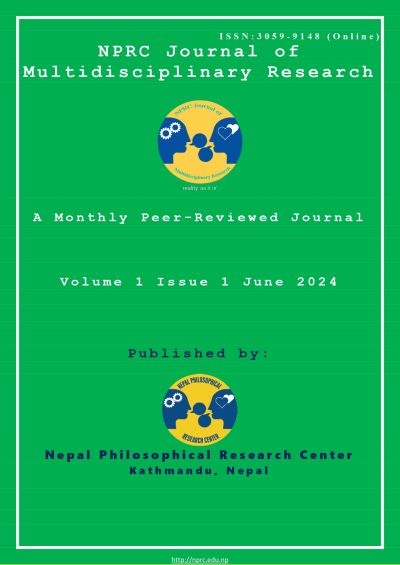Unravelling the Motivations behind Students’ Academic Migrations in Nepal: A Mixed-methods Approach
DOI:
https://doi.org/10.3126/nprcjmr.v1i1.69011Keywords:
career, education, opportunities, planningAbstract
Background: Academic migration in Nepal is a complex phenomenon influenced by various factors that impact students' decision-making processes. Policymakers and educators need to understand these motivations.
Methodology: This study investigates why Nepalese students are increasingly choosing to pursue academic opportunities abroad, and domestically. Using a mixed-methods approach, a cross-sectional time horizon was adopted in the Gulmi district of Lumbini province, Nepal.
Results: Results show that factors like educational quality, educational opportunities, and career opportunities play a role in motivating academic migration; there is not a significant association between domestic and international academic migration plans with their educational purpose (p = .681), and with career purposes (p = .426). KII and FDG highlighted the lack of learning and earning schemes, demanded courses, technical training for practical courses, career opportunities, and job opportunities for students forced to migrate.
Conclusion: The studies on academic migration highlight the complex factors driving students to seek education abroad, including attitudes towards staying in the host country, socio-economic and psychological impacts, and better career prospects. Economic considerations are a primary motivator, with personal attitudes and social networks also influential. For Nepalese students, interest in international migration is driven by perceived better quality of education, extra-curricular opportunities, and political stability. Chi-Square tests show no significant difference in migration plans based on educational or career purposes, indicating similar motivations for domestic and international migrants.
Novelty: The study's strength is in identifying the multifaceted reasons behind students' decisions to migrate, which include economic, social, and personal factors. It highlights the role of students' attitudes as a mediator in their migration decisions, a nuanced aspect not widely explored in previous research. Furthermore, the Nepalese context provides a unique perspective on how local conditions and perceptions of opportunities abroad shape migration trends.
Downloads
Downloads
Published
How to Cite
Issue
Section
License
Copyright (c) 2024 The Author(s)

This work is licensed under a Creative Commons Attribution-NonCommercial 4.0 International License.
This license enables reusers to distribute, remix, adapt, and build upon the material in any medium or format for noncommercial purposes only, and only so long as attribution is given to the creator.





